Rock the Casbah: Rage and Rebellion Across the Islamic World
Robin Wright, Author and Journalist
Co-sponsored with the Institute of International Education
DC Event | Photos | Transcript
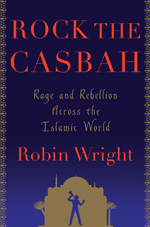 New York, NY—On September 26, 2011, WFPG and IIE co-sponsored an Author Series event with journalist Robin Wright on her new book, Rock the Casbah: Rage and Rebellion across the Islamic World. Wright, who covered the region for nearly four decades, discussed the monumental changes taking place in the Middle East and the resulting political and cultural developments. She identified four major factors contributing to the uprisings: youthful populations, raised literacy, the tools of technology, and ties to the US in combating extremism.
New York, NY—On September 26, 2011, WFPG and IIE co-sponsored an Author Series event with journalist Robin Wright on her new book, Rock the Casbah: Rage and Rebellion across the Islamic World. Wright, who covered the region for nearly four decades, discussed the monumental changes taking place in the Middle East and the resulting political and cultural developments. She identified four major factors contributing to the uprisings: youthful populations, raised literacy, the tools of technology, and ties to the US in combating extremism.
Wright outlined the political and social factors in the region that lead to the Arab Spring, which she asserts is part of a larger call for change that has been sweeping the globe for over 30 years. Expanding academic opportunities contributed to higher expectations among youth and women and also lead to increased frustrations over continued unemployment and the slow pace of change. Frustrations which culminated in what she dubbed counter-jihad: the rejection of violence as the most effective way to bring about change.
She asserted that people in the region are turning away from extremism. They have endured the effects of years of violence and now the people in the region now want their kids to have laptops, not rifles. Even without widespread support, terrorist groups still pose a substantial threat both globally and to the fledgling democracies. Wright warns that the terrorist groups still have a strong hold in Yemen and North Africa and marginalization of these groups could lead to a backlash. Addressing the US role in the Arab Spring, Wright contrasted US relations with Egypt with its relative inaction toward quashed protests in Bahrain and Saudi Arabia.
On a more personal note, Wright shared that her favorite part of the book is the stories of the young artists and emerging leaders who helped to facilitate the uprisings. She described individual rappers, comedians, and writers, who promoted peace, challenge extremism, and revisited what it really means to be a Muslim through their work. Wright touted them, and other activists, like human rights film festival organizer Dalia Ziada, as courageous trailblazers who defied authority to speak out against injustice.
While Wright is supportive of the relatively peaceful protests in the Middle East, she is concerned with the aftermath. High unemployment, lack of resources, and continued military presence, have left many countries vulnerable to the possibility of exploitation by new corrupt leaders. Countries like Tunisia and Egypt have successfully toppled their old regimes, but Wright cautioned that the transition will be difficult and urged the protesters to organize themselves and maintain a voice in their new governments. She also stressed that the US must be supportive without interfering and that the any new government must be created from a nations own experience in order to be have credibility and legitimacy.
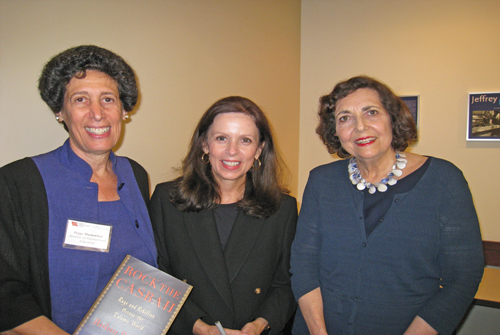 |
 |
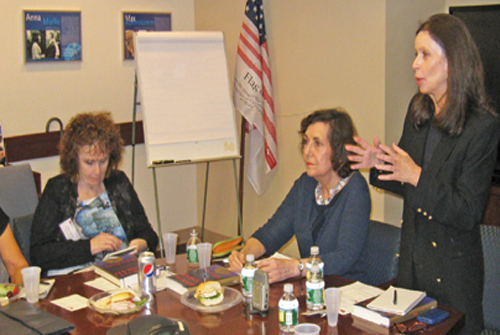 |
Peggy Blumenthal of the Institute of International Education
and Author Robin Wright with WFPG President Patricia Ellis
|
|
Speaker Robin Wright addresses WFPG
|
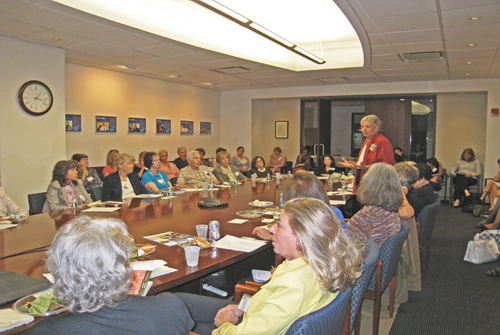 |
 |
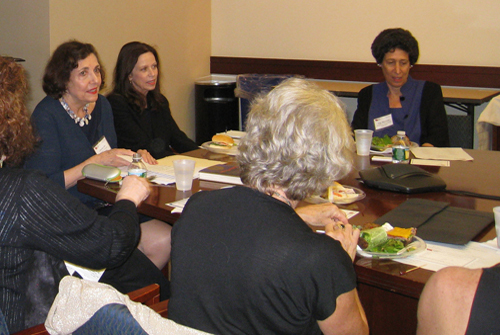 |
| |
|
|
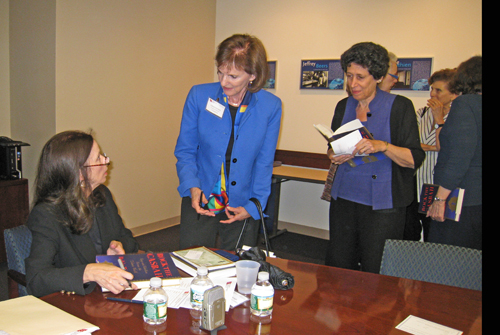 |
 |
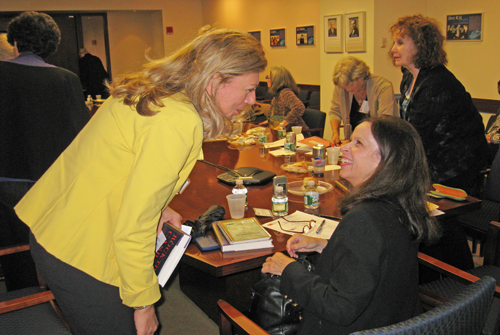 |